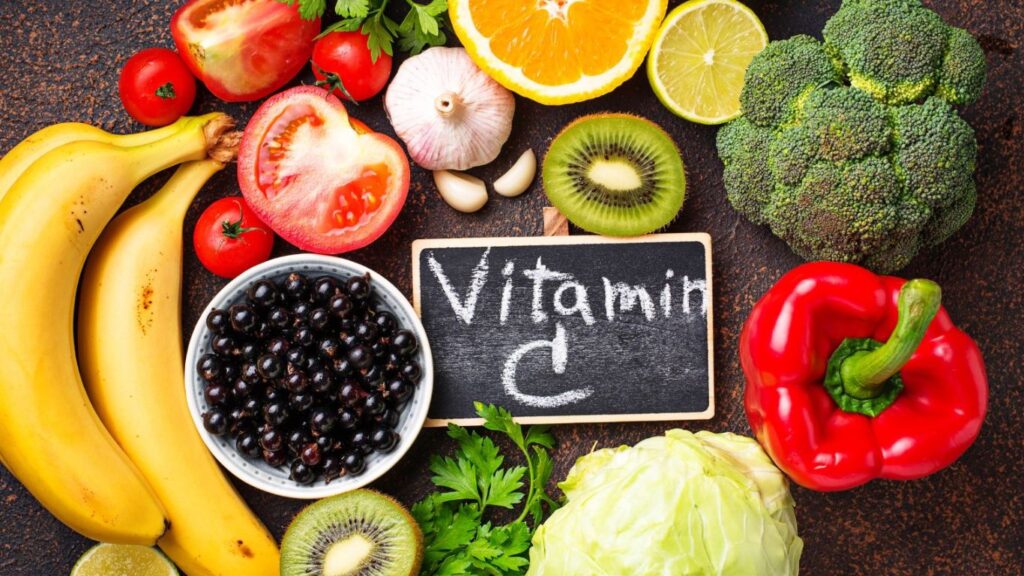Vitamin C, also known as ascorbic acid, is one of the most vital nutrients for maintaining overall health, but its role in skin health is particularly impressive. It not only acts as a potent antioxidant, fighting off harmful free radicals, but it also plays a crucial role in collagen synthesis—a process that’s key to keeping the skin firm, youthful, and glowing. This blog will explore the ways vitamin C benefits the skin, especially when it comes to collagen production and overall skin health.
How Vitamin C Helps in Skin Health and Collagen Production
The Importance of Vitamin C for Skin Health
Your skin is the largest organ of the body, and it is constantly exposed to environmental stressors like pollution, UV rays, and toxins. These stressors can lead to oxidative damage, which accelerates the aging process and causes issues like wrinkles, fine lines, and hyperpigmentation. This is where vitamin C steps in.
As a powerful antioxidant, vitamin C neutralizes free radicals, molecules that cause damage to skin cells by breaking down collagen. Collagen, a protein responsible for skin’s strength and elasticity, is vital for maintaining a youthful appearance. Without enough vitamin C, the skin is more susceptible to premature aging, resulting in sagging, dullness, and wrinkles.
Collagen Production and Its Role in Skin

Collagen is the most abundant protein in the body and forms the framework for the skin’s structure. It’s like the scaffolding that holds the skin together, providing strength and elasticity. As we age, collagen production naturally declines, leading to the appearance of wrinkles and sagging skin. But vitamin C plays a crucial role in maintaining collagen levels.
Vitamin C is an essential co-factor for enzymes involved in collagen synthesis. Specifically, it aids in the hydroxylation of proline and lysine, two amino acids necessary for stabilizing and cross-linking collagen molecules. Without sufficient vitamin C, collagen formation is impaired, leading to weak skin that is more prone to damage and aging.
This is why vitamin C is a key ingredient in many skincare products designed to combat aging. It not only supports collagen production but also helps repair damaged skin by accelerating cell regeneration.
Skin Brightening and Hyperpigmentation
Vitamin C is also well-known for its skin-brightening properties. It works by inhibiting melanin production, the pigment responsible for dark spots and hyperpigmentation. By reducing melanin synthesis, vitamin C helps lighten existing dark spots, giving your skin a more even tone and radiant glow.
Hyperpigmentation often occurs due to sun exposure, hormonal changes, or acne scars. Using a vitamin C serum or cream regularly can help fade these spots over time, improving your overall complexion.
The Role of Topical Vitamin C
While getting vitamin C from your diet is essential, applying it topically can have even more direct benefits for your skin. When used in serums or creams, vitamin C penetrates the outer layer of skin, delivering the nutrient right where it’s needed for collagen synthesis and antioxidant protection.
Topical vitamin C has been shown to:
- Reduce the appearance of wrinkles and fine lines by boosting collagen production.
- Improve skin texture by promoting healthy cell turnover.
- Enhance hydration, making the skin look plumper and more youthful.
- Reduce inflammation and redness, making it great for sensitive skin or conditions like rosacea.
When choosing a topical vitamin C product, look for one that contains L-ascorbic acid, which is the most potent form of vitamin C. Also, it’s best to use vitamin C products in the morning to maximize its protective benefits against UV rays and other environmental stressors.
Dietary Sources of Vitamin C for Skin Health
While topical application of vitamin C is effective, don’t underestimate the power of consuming this nutrient through your diet. Foods rich in vitamin C not only benefit your overall health but also contribute to healthy, glowing skin from the inside out.

Some excellent sources of vitamin C include:
- Citrus fruits like oranges, lemons, and grapefruits
- Bell peppers
- Strawberries
- Kiwi
- Broccoli
- Brussels sprouts
- Papaya
Incorporating these foods into your diet ensures your body has enough vitamin C to support collagen production and keep your skin looking its best.
Conclusion: The Ultimate Skin Ally
In conclusion, vitamin C is a powerhouse when it comes to skin health and collagen production. Its antioxidant properties protect your skin from environmental damage, while its role in collagen synthesis keeps your skin firm and youthful. Whether applied topically or consumed through a healthy diet, vitamin C is an essential nutrient that can help you maintain vibrant, glowing skin. By making vitamin C a part of your daily skincare routine and diet, you can slow down the aging process and enjoy healthier, more radiant skin for years to come.
Also read: How Raisins Improve Skin Health? The Anti-Aging Benefits of Raisins
